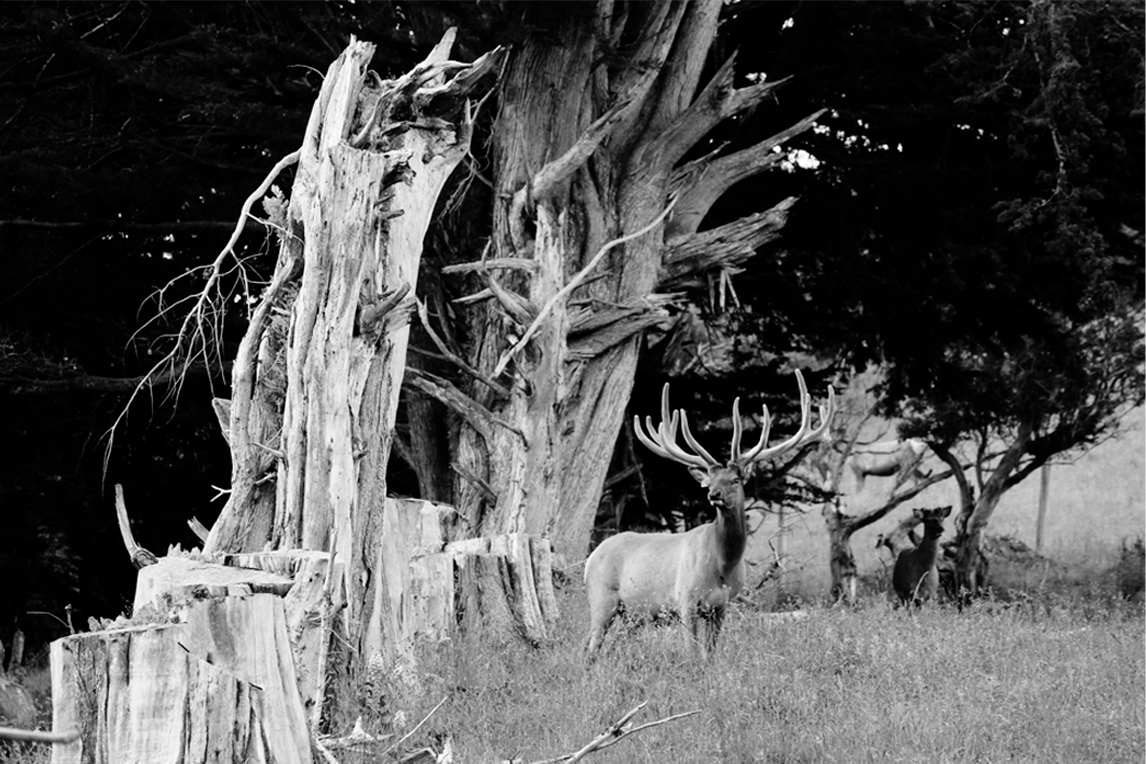Aug 15, 2025
Noticeboard
- Code of the Welfare release and subsequent changes
- Deer fencing advice for coastal farms
- Help us improve access to (agriculture) training
- Record-breaking applications highlight urgent need for GFF farm trainers
- Tasman Farmers – Primary Sector Recovery Grant
- Joke of the month
- Deer Industry News - Advertise with us
Events
If you have an event that would be of interest to the deer farming industry, please email info@deernz.org with details.
- Elk Wapiti Society of New Zealand Online Stock Sale >>
- Getting to Know the NZ Farm Assurance Plan - Greymouth, 20 August >>
- Getting to Know the NZ Farm Assurance Plan - Hokitika, 21 August >>
- Wormwise for deer - Mossburn, 26 August >>
- Wormwise for deer - Turangi, 27 August >>
- Wormwise for deer - Winton, 28 August >>
- Elk/Wapiti Zoom Discussion Group (Achieving Young Stock Growth Targets) - Online, 9 September >>
- Pāmu Farm Open Day at Eweburn Station - Te Anau, 30 October >>
- North Island Velvet Competition - Te Awamutu, 29 November >>
- National Velvet Competition and Awards Night - Invercargill, 11 December >>
Code of the Welfare release and subsequent changes.
The updated code of welfare for deer was released this week and will come into effect on 8 September. It is the first of the updated livestock codes of welfare to be published.
All those who farm and handle deer – which include trophy parks and game estates – are encouraged to familiarise themselves with the updated code.
This is the first substantive update to the code since it was first published in 2007, other than minor amendments in 2018. The updated code reflects advances in animal welfare science, farming systems, management practices and changing public attitudes.
While there are more than 60 new minimum standards, along with 4 changes to existing minimum standards, most additions and changes are about tightening language and providing greater clarity. Given the high level of animal welfare in the sector, these should not affect current deer systems significantly.
The Code was developed by the National Animal Welfare Advisory Committee (NAWAC), with feedback provided by DINZ, NZDFA, farmers, vets and transporters, before it was reviewed by deer expert Dr. Geoff Asher and then passed on to Minister Hoggard to sign into effect.
Summary of changes to the code >>
Deer fencing advice for coastal farms
We are busy developing the local deer industry in Mauritius (Rusa deer). It has big potential, but we are facing a problem with coastal farms on the south of the island which are exposed to sea winds and the fencing that we use, despite being heavily galvanised does not last long. This is obviously a huge cost to have to replace the fences every 3-4 years and is preventing the expansion in those areas.
As you have pretty similar conditions on your coast, or even worse, can you share what you use and how you deal with it?
Have you tried polypropylene fences?
Kind regards,
Pierre NOEL
Agricultural Consultant, Kilimo Services Ltd
Email: hpierrenoel@gmail.com
Mobile: +230 5 737 6805
Help us improve access to (agriculture) training
You probably see a lot of surveys, but completing this one could improve access to essential training for your industry.
We want to understand how easy it is for people like you to find education and training opportunities in your industry and in your region. If training isn’t visible or easy to find, it could be stopping you from making full use of what’s available in the vocational education and training system.
Please take our quick 4-question survey. Your feedback will help us to improve how you and others find essential workforce training.
Ngā mihi,
John Henare
Engagement and Partnerships Lead
Muka Tangata - People, Food and Fibre Workforce Development Council
Record-breaking applications highlight urgent need for GFF farm trainers
Growing Future Farmers (GFF) is celebrating a record-breaking 150 student applications for its 2026 intake – a clear sign that young people are embracing farming as a meaningful and rewarding career path.
This surge in interest, however, brings an urgent opportunity. With demand exceeding placements by nearly 90 percent, GFF is now calling on experienced farmers across King Country, Otago and Canterbury to come on board as farm trainers.
GFF connects young people with experienced farmers to learn on the land. Students gain real skills, confidence and resilience through hands-on farm experience, mentoring, and structured support. Over two years, they develop essential livestock and agribusiness skills while contributing to daily farm operations four days a week, supported by formal learning one day a week.
The benefits of training go both ways. Many farmers who take on GFF students say they gain fresh perspectives, renewed motivation, and stronger team culture on-farm. GFF offers full support to its trainers, including dedicated Student Success Advisors, and substantial help with admin and training coordination.
GFF invites farmers to get in touch for a no-pressure chat to learn more about becoming a trainer.
More information is available at www.growingfuturefarmers.co.nz/farm-trainers.
About Growing Future Farmers
GFF is a charity that provides the opportunity for young people to enter the sheep, beef and deer industry with the confidence of supported training and development. GFF offers an industry respected, employer-led career pathway that enables motivated young people to progress in their career.
Tasman Farmers – Primary Sector Recovery Grant
MPI has confirmed on Tuesday a Primary Sector Recovery Grant of $340,000 for farmers, growers, foresters and fishers in the Tasman region.
Applications can be for the following but not limited to:
- Cleaning up silt and debris on production land
- Removing debris in and around aquaculture farms
- Removing fallen trees from boundary fences, riparian zones, and key access ways
- Clearing key tracks
- Infrastructure identified as being essential for production, but where costs cannot be met by insurance.
- Material costs of fences and culverts
- Costs of farm or other machinery to undertake recovery activities
Note: Applications can be retrospective!!
To apply, go to: Primary sector recovery grants | Tasman District Council >>
Applications close: 29 August 2025
Joke of the month
Husband: Did you know Old McDonald’s farm has been taken over by Artificial Intelligence?
Wife: AI?
Husband: AI.
Wife: Oh.
A Machine Learning algorithm walks into a bar. The bartender asks "What will you have?". The algorithm says "What's everyone else having?"
Why was the computer cold?
It left its Windows open.
Deer Industry News - Advertise with us


